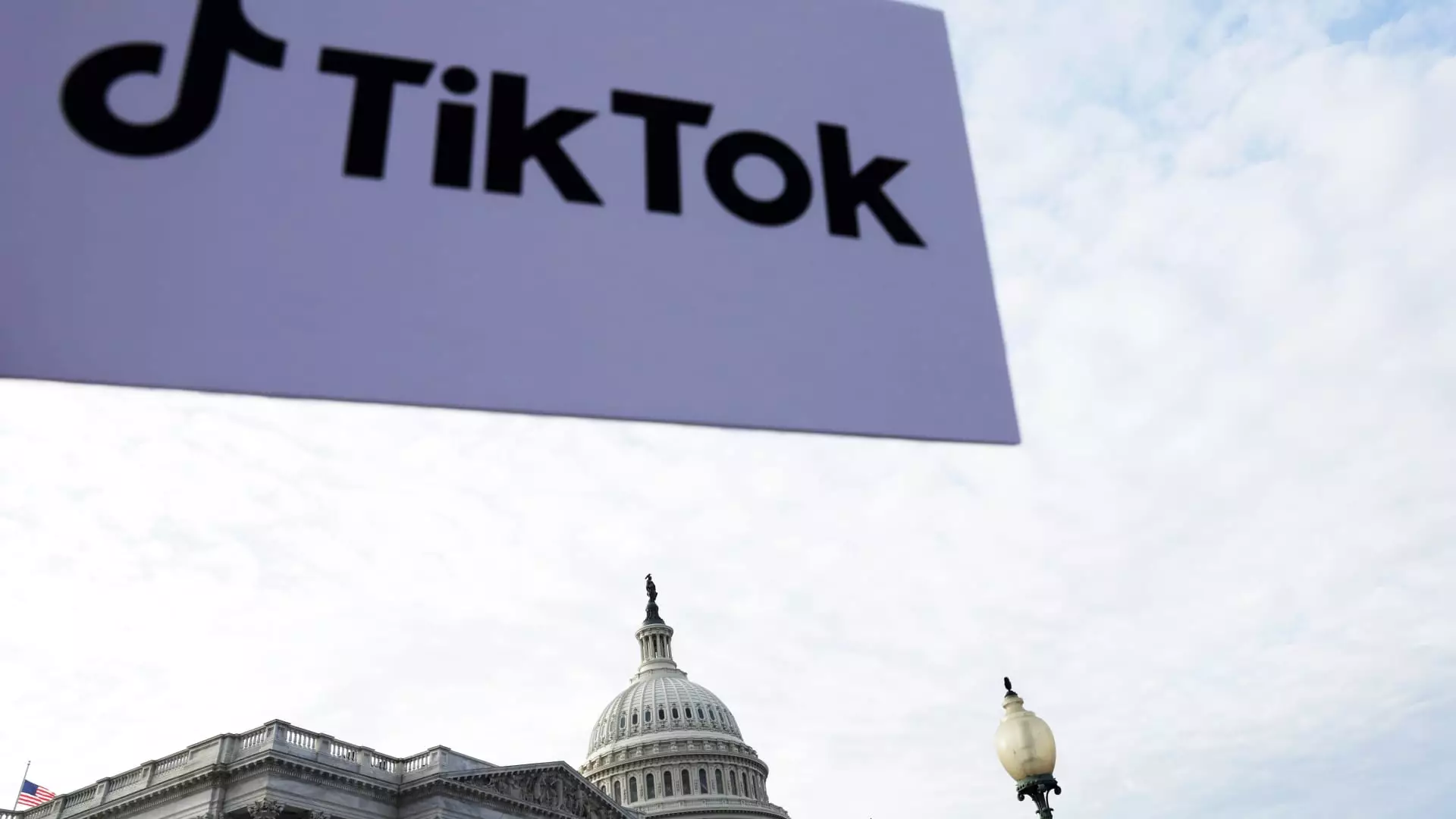Recent developments have indicated a potential shift in the U.S. legal landscape regarding the popular social media app TikTok. A bipartisan effort in Congress has prompted the top executives of major tech companies, specifically Apple and Google, to prepare for steps that could effectively lead to a TikTok ban in the United States as early as next month. On a recent Friday, letters were dispatched to influential figures such as Tim Cook and Sundar Pichai, urging them to comply with a new law triggered by a federal court ruling that mandates TikTok’s Chinese parent company, ByteDance, to divest its ownership before a statutory deadline of January 19.
The Select Committee on the Chinese Communist Party, headed by Representatives John Moolenaar (R-Mich.) and Raja Krishnamoorthi (D-Ill.), expressed their concerns regarding the obligations of app store operators as legal enforcers of U.S. policy. The lawmakers remind these tech giants that failure to comply with their legal responsibilities could hinder TikTok’s ability to operate on their platforms within U.S. borders.
The legal framework surrounding this issue stems from a ruling by the U.S. Court of Appeals supporting a law devised to safeguard national security interests from foreign adversaries. According to the law, organisations like Apple and Google are legally bound to withdraw from providing service to any application that is controlled by foreign entities deemed adverse to U.S. interests. This encompasses maintaining, updating, or distributing the application via their mobile platforms.
In their messages, Moolenaar and Krishnamoorthi outlined significant aspects of the law that showcases its implications for both corporations and app users. They reiterated that TikTok, under its current ownership structure, is classified as a “foreign adversary controlled application.” Therefore, if ByteDance fails to divest, compliance on part of Apple and Google is not just expected—it’s obligatory.
Political ramifications of this impending ban have begun to surface, particularly with President-elect Donald Trump accepting the complexities surrounding TikTok’s status. Although he hasn’t delineated his position on enforcing the ban, prior escapades from his first administration had shown an inclination toward banning the platform. However, one key factor in the evolving narrative is billionaire Jeff Yass, a notable Republican donor with significant investments in ByteDance, who may influence the president-elect’s stance on this issue.
As noted in the communications from the lawmakers, this predicament places TikTok in a precarious position not only regarding legal compliance but also in terms of financial stability. The application has asserted that a month-long ban could lead to a staggering $1.3 billion loss for small businesses and content creators who rely on the platform for revenue generation. Such economic impacts serve as a poignant reminder of the interconnectedness between technology, commerce, and, increasingly, matters of national policy.
TikTok’s Legal Response and Broader Implications
In response to the court’s actions, TikTok has taken a proactive stance by filing an emergency motion for an injunction, hoping to stall the enforcement of the ban at least until the U.S. Supreme Court can weigh in. In making its case, TikTok has argued that the law is unconstitutional, claiming it infringes upon the First Amendment rights of its 170 million users in the U.S. A three-judge panel, however, has deemed that the law is designed with narrow intent to fortify national security. Their ruling reinforces the legislative efforts to regulate foreign technological influences and reflects a growing trend toward limiting foreign control over domestic digital spaces.
With the January 19 deadline looming, the future of TikTok in the American market hangs in the balance, caught between concerns of national security and the economic welfare of millions who depend on the platform. As the situation develops, it remains to be seen how decisions made by corporate leaders at Apple and Google, as well as the impending actions of the U.S. Supreme Court, will shape the narrative surrounding TikTok. The interplay between governmental oversight, corporate compliance, and user rights presents a complex challenge that will resonate far beyond social media, setting a precedent for how the U.S. navigates its digital landscape amid rising geopolitical tensions.

